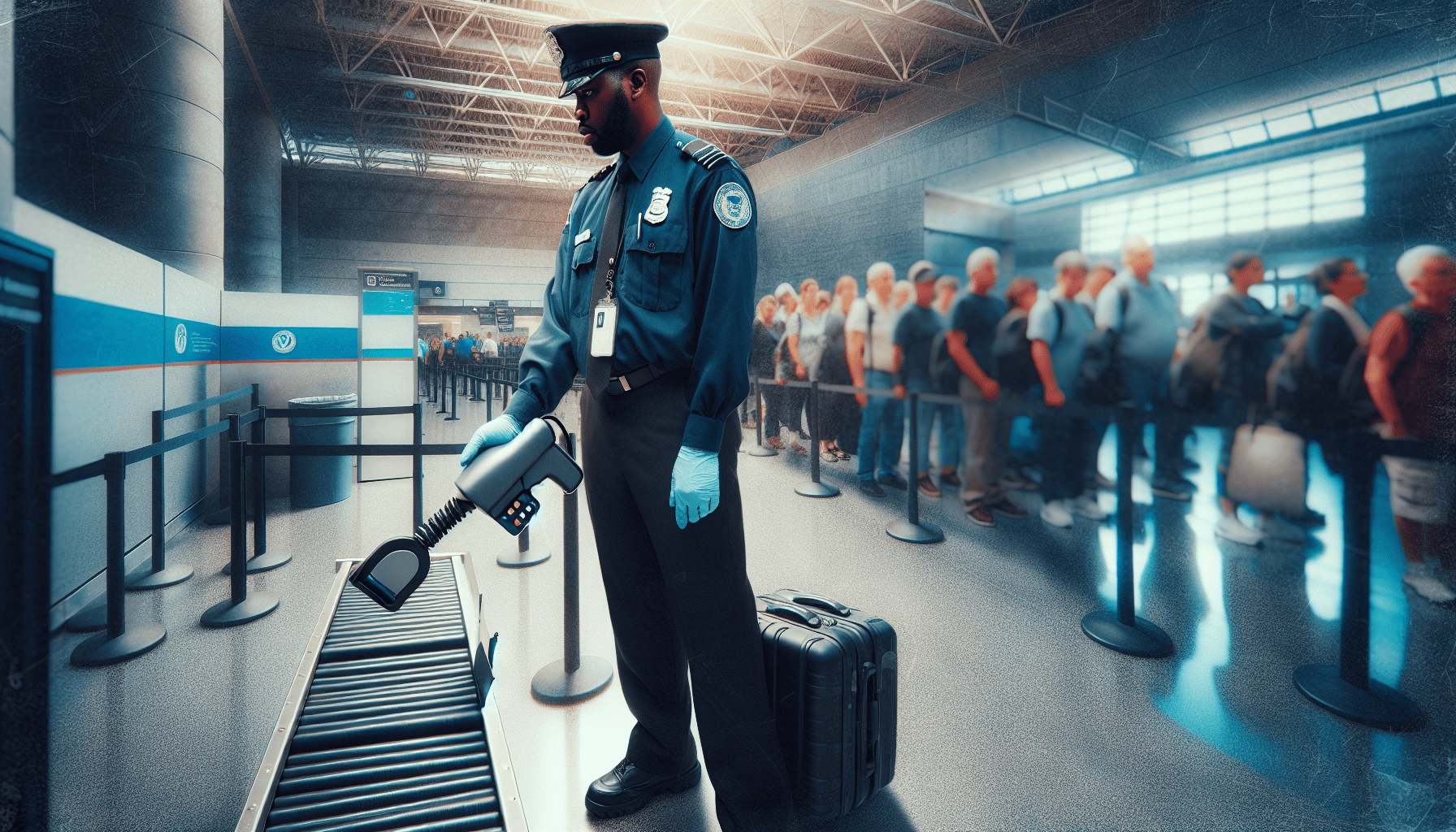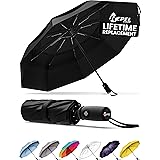Navigating airport security can be daunting, especially when you’re traveling with a metal implant or prosthetic. “What You Need To Know About Going Through TSA With A Metal Implant Or Prosthetic” provides crucial insights to help you breeze through the process with confidence. From informing TSA agents about your medical devices to understanding your rights during screenings, this guide ensures you are well-prepared for your journey. You’ll learn how to manage the additional checks metal implants might trigger and discover best practices for traveling with prosthetics. Embrace your travels with peace of mind and enjoy the adventure ahead! Have you ever wondered what it’s like going through TSA with a metal implant or prosthetic? Whether it’s for business, vacation, or visiting loved ones, everyone deserves to travel without unnecessary hassle, including those who utilize metal implants, medical devices, or prosthetics. Understanding the TSA procedures can make all the difference in ensuring a smooth experience. Buckle up as we dive into everything you need to know to prepare for your next trip with these medical aids!
Shop These Accessories for a Comfortable Trip
Understanding the Basics
Navigating airport security can be daunting, especially when you have a medical device or prosthetic. Here’s why knowing your rights and what to expect can be a game-changer.
The Challenge of Metal Implants and Prosthetics
You’ve probably heard stories about travelers facing issues at security checkpoints due to their medical devices. These devices can set off scanners, flagging you for additional inspection. The key is to be prepared and stay informed about the TSA’s procedures.
A Past Filled with Challenges
Years ago, the media highlighted several unfortunate incidents involving travelers with medical devices. These stories showcased TSA agents being insensitive toward individuals with unique medical needs, which caused a public outcry. Fortunately, such cases have become less prevalent. However, it’s critical to stay armed with knowledge for a hassle-free experience.
Preparing for Your Trip
Proper preparation is essential when traveling with metal implants or prosthetics. Knowing what to expect can help alleviate stress and ensure that your trip gets off to a smooth start.
Informing the TSA Agents
The TSA recommends informing the checkpoint agent about your implant or device. This can save you time and prevent misunderstandings. There’s no need for a special medical ID card or a doctor’s letter, but being upfront makes the process smoother.
Know Your Rights and Screening Options
Awareness of your rights and available screening options can significantly reduce stress. You have the option to request a private screening if you’re uncomfortable with the public process or have concerns about the procedure.

Shop These Accessories for a Comfortable Trip
Metal Implants and TSA Scanners
Metal implants vary widely, from joint replacements to dental screws. While these devices can trigger body scanners and metal detectors, they shouldn’t prevent you from traveling.
Types of Metal Implants
| Type of Implant | Common Usage |
|---|---|
| Joint Replacements | Hip, knee, and shoulder replacements |
| Defibrillators | Monitor and correct irregular heartbeats |
| Dental Implants | Support replacement teeth |
Informing the TSA About Your Implant
When you reach the security checkpoint, tell the TSA agent about your implant. There’s no need to produce a special card or letter. If advanced imaging technology is available, it can often scan you without problems. If not, a pat-down of the implant area may be required.
Screening Options for Metal Implants
Some devices, like pacemakers, shouldn’t be exposed to metal detectors. If your airport only offers metal detection machines, request a full pat-down instead. Knowing this beforehand will help you breeze through security without issue.
Traveling with Prosthetics
Prosthetics add another layer of complexity to airport security. Whether you choose to keep them on or remove them, understanding the TSA’s guidelines will streamline the process.
Packing Prosthetics
According to the TSA, prosthetic appliances can be carried in both carry-on bags and checked luggage. This flexibility allows you to decide what works best for you based on your own comfort and convenience.
Wearing Prosthetics
You can wear your prosthesis through security, but expect some additional screening. TSA agents might use a metal detector wand and perform tests for traces of prohibited items. The Amputee Coalition notes that TSA officers may check your prosthesis, but breast prosthetics are generally exempt from this.
Requesting a Private Screening
Feeling uncomfortable with public screening? Ask for a private one. TSA agents are obliged to accommodate this request, ensuring your privacy and peace of mind.

Dealing with Screening Procedures
The additional screening may feel intrusive, but complying with TSA instructions helps speed up the process. Let’s break down the steps you might encounter.
Pat-Down Procedures
If an advanced imaging machine isn’t available, a pat-down might be necessary. This is a physical inspection done by a TSA agent to ensure you’re not carrying anything prohibited.
Wand and Explosive Trace Detection
TSA agents might use a metal detector wand to examine your prosthetic device. Additionally, they could swab it to test for traces of explosives or other restricted substances. This is standard procedure and typically quick.
Reporting Issues
If you feel mistreated or that an agent has overstepped their bounds, report it immediately through TSA’s online complaints form. Your feedback is crucial for improving the system for everyone.
What To Do Before You Arrive at the Airport
Preparation is key for a stress-free journey. Here are some actionable tips to help you prepare before you even step foot in the airport.
Documentation and Identification
While you don’t need special medical documentation, carrying a doctor’s note can sometimes be beneficial for peace of mind. Ensure you have all necessary identification and travel documents readily available.
Plan Your Timing
Give yourself extra time at the airport. Security checks can be unpredictable, and arriving early can help you handle any unexpected delays without feeling rushed.
Communication is Key
Inform the airline about your condition beforehand, especially if you require specific accommodations. Airlines often have policies in place to assist passengers with medical needs.
FAQs: Common Concerns and Questions
Let’s address some frequently asked questions to help clear up any remaining doubts you might have.
Do I Need to Carry Medical Documentation?
No, but having a doctor’s letter can sometimes simplify the process. It’s best to inform TSA agents verbally about your condition.
Can I Request a Specific Type of Screening?
Yes, if you’re uncomfortable with a particular screening method, you can request a different type of screening, such as a pat-down instead of a full-body scan.
What If My Device Sets Off an Alarm?
If your device sets off an alarm, you’ll undergo additional screening methods like a pat-down or the use of a metal detector wand.
Additional Resources
Don’t stop here. Plenty of resources are available to help you navigate this sometimes tricky terrain.
TSA Cares
TSA Cares is a helpline specifically for travelers with medical conditions. Calling ahead can help you get personalized guidance and support.
Amputee Coalition
The Amputee Coalition offers tons of resources about traveling with prosthetics, including what to expect and how to prepare.
Online Community Support Groups
Many online forums and communities can offer anecdotal advice and share experiences to help you feel more prepared.
Conclusion
Traveling with a metal implant or prosthetic can feel daunting, but with proper preparation and knowledge, it doesn’t have to be. Knowing what to expect, understanding your rights, and preparing in advance can make your journey much smoother. Safe travels, and may your adventures be hassle-free and enjoyable!






